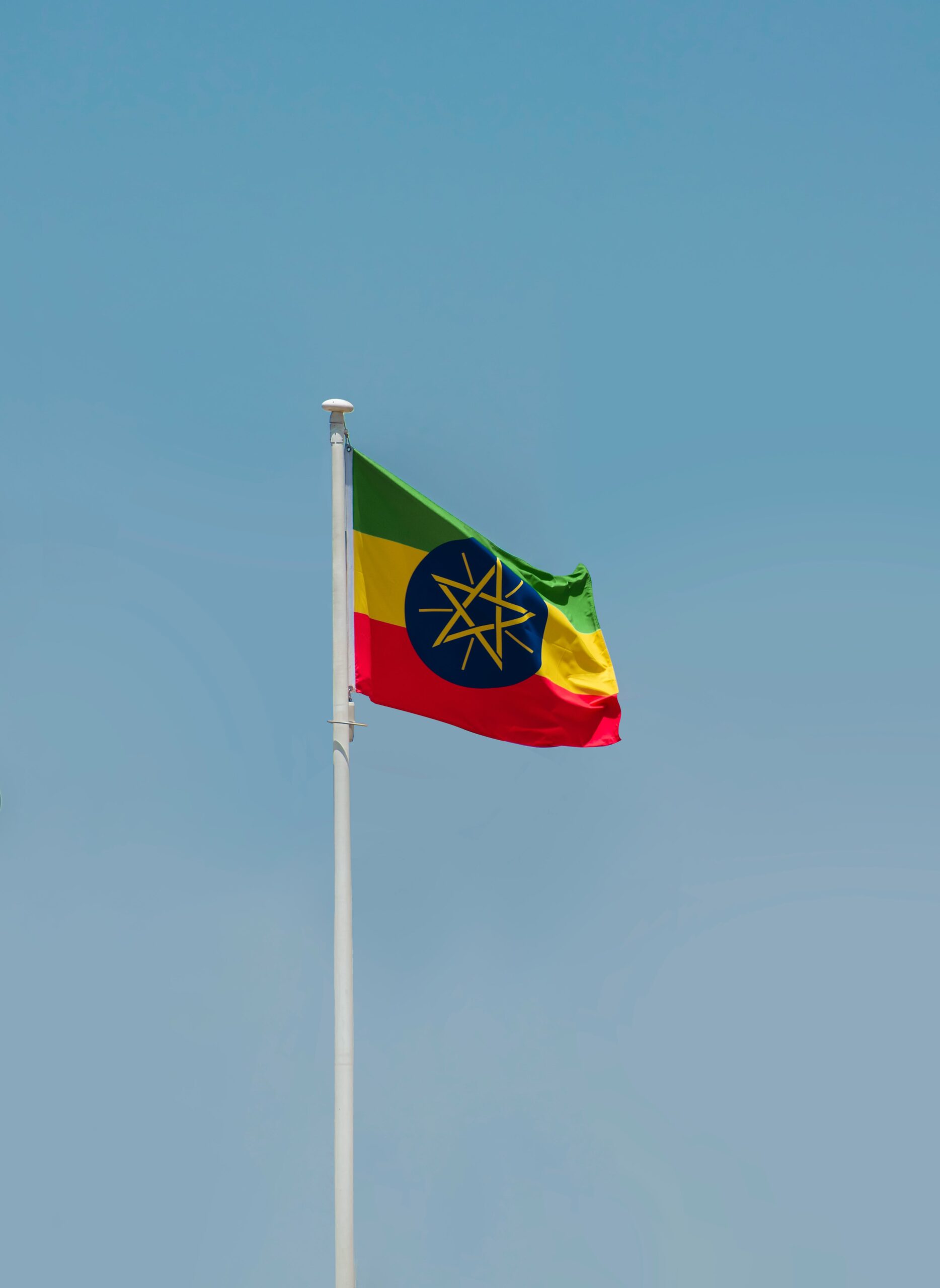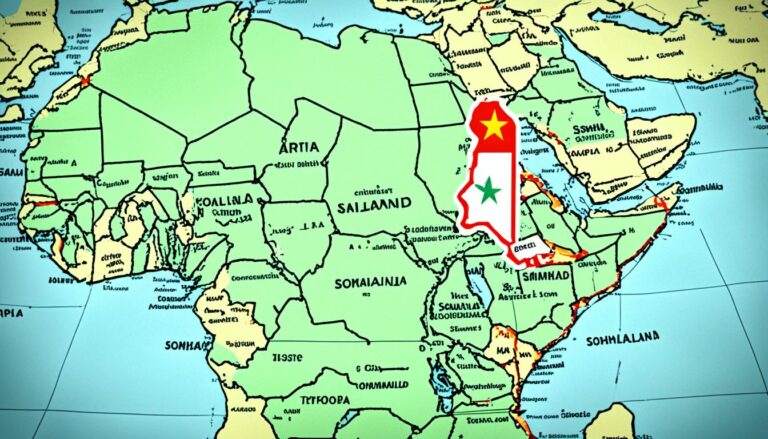Eve Of Meskel (Finding Of The True Cross Eve) In Ethiopia
Significance of Meskel (Finding of the True Cross) Eve in Ethiopian Culture
Meskel Eve is a significant cultural and religious celebration in Ethiopia that commemorates the discovery of the True Cross by Empress Helena in the 4th century. This event holds great importance in Ethiopian Orthodox Christian tradition and is observed with reverence and joy throughout the country.
One of the key aspects of Meskel Eve is the gathering of families and communities to mark the occasion through prayers, hymns, and traditional rituals. It is a time for reflection, thanksgiving, and unity among people, reinforcing the cultural fabric of Ethiopian society.
The eve of Meskel is characterized by the lighting of a large bonfire known as “Demera.” This ritual symbolizes the direction given to Empress Helena in a dream to light a fire, leading her to the True Cross. The lighting of the bonfire is a symbolic act of celebrating the triumph of Christianity and illuminating the way for believers.
Moreover, Meskel Eve serves as a time for Ethiopians to connect with their heritage and spiritual roots. The rich history behind the True Cross and the celebration of its discovery remind people of their deep cultural heritage and the enduring presence of Christianity in their lives.
As Meskel Eve approaches, the anticipation and excitement build up in Ethiopian communities. From the youngest members to the elders, everyone partakes in the festivities, creating lasting memories and strengthening familial bonds. It is a time of joy, feasting, and spiritual renewal for all who take part in this vibrant celebration.
In essence, Meskel Eve stands as a testament to the enduring faith and cultural pride of the Ethiopian people. It is a cherished tradition that brings together individuals from all walks of life to commemorate a pivotal moment in religious history and celebrate the unity and resilience of the Ethiopian nation.
Traditional Celebrations and Rituals on the Eve of Meskel in Ethiopia
The Eve of Meskel, also known as the Finding of the True Cross Eve, holds significant cultural and religious importance in Ethiopia. This ancient festival commemorates the discovery of the True Cross by Queen Helena in the 4th century. The eve of Meskel is celebrated on September 26th, marking the beginning of a vibrant and colorful festival that continues into the following day.
Ethiopian communities across the country come together to celebrate Meskel Eve with traditional rituals and ceremonies that have been passed down through generations. One of the central elements of the celebration is the Demera, a large bonfire that is lit in the evening. The bonfire symbolizes the bonfire used by Queen Helena to guide her to the True Cross.
On the eve of Meskel, people dress in traditional attire, with women wearing white dresses called "habesha kemis" and men donning white tunics. Families gather together to participate in prayers and hymns led by priests and elders. The air is filled with the scent of frankincense and myrrh, adding to the spiritual ambiance of the occasion.
As the sun sets, the lighting of the Demera takes place in a central location, where crowds gather around the towering bonfire. The bonfire is made of dry wood and topped with a cross-shaped figure that represents the True Cross. The flames dance high into the night sky, casting a warm glow over the gathered crowd.
In addition to the bonfire ceremony, traditional Meskel feasts are prepared, featuring dishes such as "doro wat" (spicy chicken stew) and "injera" (a sourdough flatbread). Families and friends come together to share a festive meal, reinforcing bonds of community and kinship.
The eve of Meskel is a time of joyous celebration, where ancient traditions and vibrant customs merge to create a rich tapestry of Ethiopian culture. As modern influences shape the way festivities are conducted, the essence and spirit of Meskel Eve continue to be preserved, highlighting the deep-rooted heritage of the Ethiopian people in honoring their faith and history.
Symbolism of the Bonfire Lighting Ceremony on Meskel Eve
Meskel Eve in Ethiopia holds deep cultural and religious significance, especially highlighted by the symbolic bonfire lighting ceremony. The bonfire lighting ceremony is a cherished tradition that dates back centuries and is a key element of the Meskel celebrations. The lighting of the bonfire represents the discovery of the True Cross by Empress Helena in the 4th century. It symbolizes the bonfire that she lit to guide her to the buried cross. This symbolic gesture is a visual representation of light triumphing over darkness and serves as a reminder of the triumph of Christianity in Ethiopia.
The bonfire is typically made of dry wood, and a symbolic cross made of fresh green leaves is placed at the top. As the sun sets on Meskel Eve, families and communities gather around the bonfire in a spirit of unity and joy. The flames reaching for the sky symbolize the prayers and wishes of the people rising to the heavens. The warmth of the fire signifies the blessings and grace sought from God on this auspicious occasion.
Moreover, the bonfire lighting ceremony is not only a religious ritual but also a cultural celebration. It brings together people from all walks of life, fostering a sense of togetherness and community spirit. Young and old alike participate in the ceremony, adding to the richness and vibrancy of the occasion. As the fire crackles and lights up the night sky, traditional music and dance performances further amplify the festive atmosphere, creating a truly memorable experience for all involved.
In addition to its symbolic and cultural significance, the bonfire lighting ceremony also has practical implications. In rural areas where electricity may be limited, the bonfire serves as a source of light, illuminating the surroundings and bringing a sense of security to the community. This dual purpose of the bonfire highlights its importance in both spiritual and practical contexts, making it a central element of the Meskel Eve celebrations in Ethiopia.
The bonfire lighting ceremony on Meskel Eve is a time-honored tradition that encapsulates the essence of Ethiopian culture and heritage. It serves as a beacon of light, guiding the faithful in their spiritual journey and uniting communities in joyous celebration. The symbolism, cultural significance, and practical benefits of the bonfire ceremony make it a cherished and integral part of the Meskel festivities, continuing to be a treasured custom passed down through generations.
Eve of Meskel Feasts and Culinary Traditions in Ethiopian Households
As the sun sets on the eve of Meskel in Ethiopia, households across the country come alive with preparations for a night of celebration and feasting. Meskel, the finding of the True Cross, is a significant religious and cultural holiday in the Ethiopian Orthodox Church, and its eve is marked with traditional rituals and culinary delights.
One of the central elements of the Meskel Eve celebration is the feast that brings families and communities together. The feast typically includes a variety of dishes that showcase the rich culinary heritage of Ethiopia. Injera, a spongy flatbread made from teff flour and used to scoop up savory stews and vegetables, is a staple of the Meskel feast. Dishes such as doro wat (spicy chicken stew), kitfo (minced raw beef), and atkilt wat (spiced vegetables) are also commonly served during this time.
Moreover, traditional drinks like tej (honey wine) and tella (home-brewed beer) flow freely during the Meskel Eve celebrations, adding to the festive atmosphere. These beverages have been part of Ethiopian culture for centuries and are often enjoyed as an accompaniment to the flavorful dishes served on this special occasion.
Furthermore, the act of sharing food during the Meskel Eve feast is deeply symbolic in Ethiopian culture. It is a gesture of hospitality, unity, and gratitude, reflecting the importance of community and connection in Ethiopian society. This tradition of communal dining strengthens bonds among family members and neighbors, fostering a sense of togetherness and solidarity.
Over the years, modern influences and urbanization have begun to shape the way Meskel Eve is celebrated in some parts of Ethiopia. While traditional dishes still hold a special place on the dinner table, contemporary foods and international cuisines are also making their way into the festivities. This blending of old and new culinary traditions reflects the evolving nature of Ethiopian culture and the country’s openness to cultural exchange.
The Meskel Eve feasts and culinary traditions in Ethiopian households are a vibrant expression of the country’s cultural heritage and religious beliefs. As families gather around the dinner table to partake in delicious food and drink, they not only honor an ancient religious observance but also strengthen the bonds that unite them as a community.
Impact of Modernization on the Observance of Meskel Eve in Ethiopia
Modernization has brought about significant changes in the way Meskel Eve, also known as the Finding of the True Cross Eve, is observed in Ethiopia. As the country progresses towards a more interconnected and technology-driven era, traditional customs and rituals associated with this sacred celebration have evolved over time.
One of the key impacts of modernization on Meskel Eve is the shift in how the younger generation engages with this religious festival. With the influence of technology and social media, young Ethiopians are exposed to a myriad of global trends and influences, which has led to a reinterpretation of traditional practices.
Furthermore, urbanization has played a crucial role in changing the way Meskel Eve is celebrated. As more people move to cities in search of better opportunities, there is a gradual shift from rural communal festivities to more private and intimate gatherings in urban areas.
Additionally, the commercialization of Meskel Eve has increased with the advent of modern marketing techniques. Businesses capitalize on this festive occasion by promoting various products and services, thereby altering the traditional essence of the celebration.
Moreover, the impact of modernization can also be seen in the way Meskel Eve feasts and culinary traditions have evolved. While traditional dishes are still prepared and enjoyed, there is a fusion of modern cooking techniques and ingredients that cater to changing tastes and preferences.
Despite these modern influences, many Ethiopians strive to maintain the essence and significance of Meskel Eve. Efforts are made to strike a balance between embracing modernity and preserving age-old traditions, ensuring that the true spirit of this sacred festival is upheld for generations to come.
Conclusion
In Ethiopian culture, the Eve of Meskel (Finding of the True Cross Eve) holds immense significance, deeply rooted in both religious beliefs and historical events. The day commemorates the discovery of the True Cross by Queen Helena in the 4th century, symbolizing the triumph of Christianity in Ethiopia. This annual celebration is a testament to the rich cultural heritage and spiritual devotion of the Ethiopian people.
Traditional celebrations on the Eve of Meskel are characterized by vibrant festivities that bring communities together in joyous revelry. One of the most iconic rituals is the Demera procession, where a large bonfire is lit to symbolize the direction Queen Helena was guided to find the True Cross. This symbolic act is a profound expression of faith and unity among believers, marking the beginning of a jubilant night of singing, dancing, and prayer.
The bonfire lighting ceremony on Meskel Eve is laden with symbolism, reflecting the triumph of light over darkness and the victory of good over evil. As the flames illuminate the night sky, they serve as a beacon of hope and spiritual renewal for the Ethiopian people. The warmth and brightness of the bonfire invite participants to cast away their worries and fears, embracing a sense of community and togetherness under the light of faith.
Meskel Eve feasts are a central part of the celebrations, where families come together to share traditional dishes and culinary delights. In Ethiopian households, preparing special meals such as doro wat (spicy chicken stew) and injera (flatbread) is a cherished tradition that adds flavor and festivity to the occasion. These communal feasts foster a sense of familial ties and hospitality, reinforcing the bonds that unite loved ones during this auspicious time of the year.
Modernization has brought about changes in the observance of Meskel Eve in Ethiopia, with urbanization and evolving lifestyles influencing the way the festival is celebrated. Despite these shifts, the essence of Meskel Eve remains deeply ingrained in the hearts of the Ethiopian people, who continue to honor their cultural heritage with reverence and joy. The fusion of traditional customs with contemporary influences reflects the resilience and adaptability of Ethiopian culture in the face of changing times.
As Meskel Eve draws to a close, the echoes of celebration linger in the air, carrying with them the spirit of unity, faith, and heritage that define this auspicious occasion. The legacy of Meskel endures as a testament to the enduring traditions and values that shape Ethiopian culture, inspiring generations to come with its message of hope, love, and community. With each passing year, the Eve of Meskel continues to light the way for Ethiopians, guiding them towards a future illuminated by the faith and camaraderie that define this sacred day.





